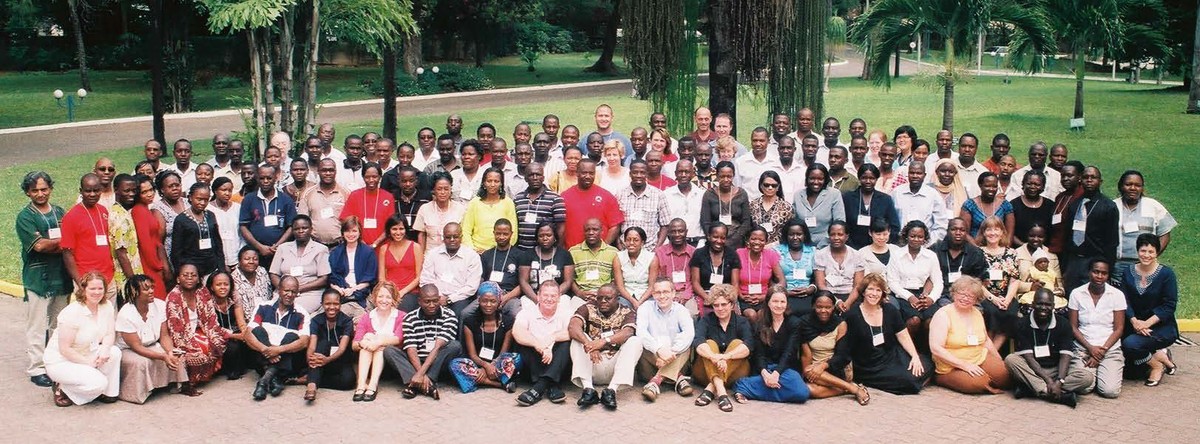Antiretroviral drugs are effective to protect against AIDS
2011/09/01 Elhuyar Zientzia Iturria: Elhuyar aldizkaria
Two research conducted in sub-Saharan Africa shows that drugs used to treat AIDS are effective in protecting against AIDS. Two entities that have participated in the studies, the Center for Control and Prevention of Infectious Diseases of the United States (CDC) and the University of Washington, have jointly announced that the results are so satisfactory that they have abandoned the placebo branch.

Participants in the 2009 PrEP meeting in Kenya. ED. : University of Washington
Both studies were prEP ( pre-exposure prophylaxis ), i.e., prevention before submitting to the virus. A few months ago the results of another study of the same type of study were published, and the results were satisfactory, since they showed that antiretroviral drugs decreased the risk of contracting AIDS by 43.8% (see news from Elhuyar magazine of November 2010). On this occasion the results have been even better.
In fact, both investigations have been conducted in Kenya and Uganda, in which a total of 4,758 discordant couples have participated (called discordant when one of them has AIDS and the other not). They have tried two types of drugs: empty tenofovirus, tenofovirus, and endomycin at once (Truvada), and in both groups there was a group of placebos. They informed everyone about AIDS and preventive measures. The research began in July 2008 and until May of this year it has been proven that Tenofovirus reduces the risk of infection by 62% and Truvada by 73%.
These good results have led researchers to suspend the placebo branch. And, seeing that prevention is effective, it would not be ethical for that group to continue without taking medications. In addition, they have given a reason to explain the success of the research. According to the researchers, this is because the adhesion of discordant couples to the investigation has been very narrow, that is, on previous occasions the participants did not fulfill so well the orders given by the researchers, so they did not have so good results.
According to the researchers, the results are even better considering the context. In fact, traditional prevention methods (abstinence and use of condoms) are not successful in these countries because people do not consider them. Women are the most affected: most of them do not have the possibility to renounce sexual relations or to make their partner succeed. For this reason, the researchers have stated that antiretroviral pills can become an effective preventive measure and, therefore, can represent a significant change in strategy in the fight against AIDS.
For his part, Daniel Zulaika, coordinator of the Osakidetza AIDS Plan, does not see so clearly that the results obtained in the research are likely to be used as prevention methods: "I think they have many obstacles and problems. From a scientific point of view and research are good results, but we cannot forget that those who are not yet protected (30-40%) are infected with AIDS. And we know that using condoms is much more effective than taking these drugs."
Zulaika considers that the problem of using these drugs as a prevention method in countries with less possibilities or habit of using condoms is economic: "At this time there are 15 million people infected in undeveloped countries and only 5 million receive treatment. So, if there is no money to treat those who are already infected, how are we going to allocate that amount (you need 100 euros per person per year) to prevent? It is not coherent."

Gai honi buruzko eduki gehiago
Elhuyarrek garatutako teknologia





